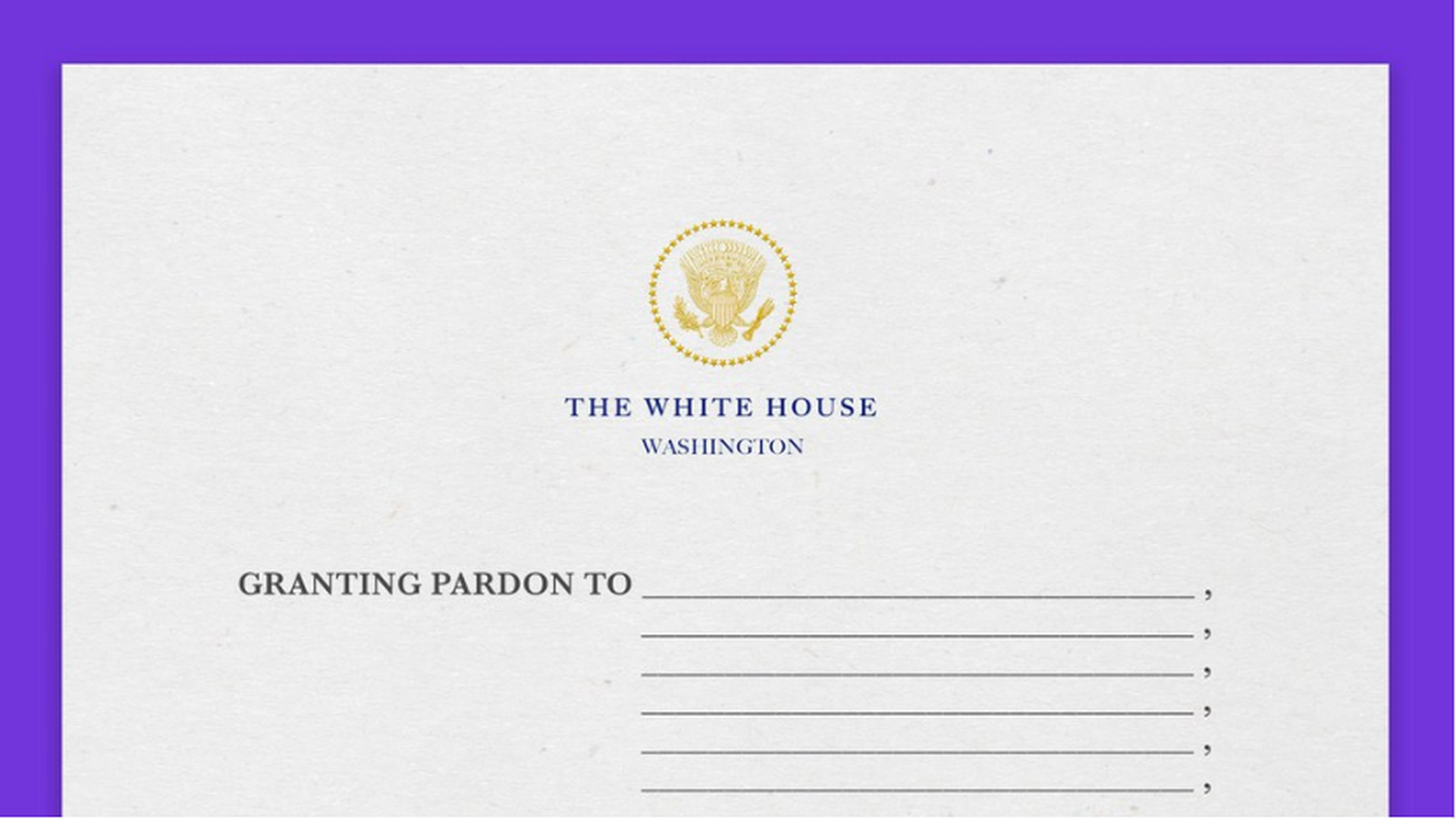How President Trump's pardon power works
Add Axios as your preferred source to
see more of our stories on Google.

Lazaro Gamio / Axios
President Trump has pardoned former sheriff Joe Arpaio, noting his record of public service and calling him a "worthy candidate for a Presidential pardon."
Why it matters:
Granting pardons has historically been an unpopular move — it derailed Gerald Ford's reelection bid in 1976 — and it often opens the door for a president's motives to be called into question. But President Trump has spoken openly, and early on, about his power to grant pardons, seemingly without concern for whether it will damage his reputation. Last month, he reportedly asked his legal team whether he could pardon aides, family members, and even himself if implicated in Special Counsel Bob Mueller's Russian investigation; and now he's issued his first pardon, just 7 months into his presidency.
The facts:
- A president's pardoning power is outlined in Article II, Section 2 of the Constitution, which states, "The President... shall have Power to grant Reprieves and Pardons for Offenses against the United States, except in Cases of Impeachment."
- In other words, President Trump has the authority to pardon anyone (except in an impeachment conviction), whether or not they have already been charged with a crime; and that power is absolute, extending to his family and members of his administration.
- One misconception: Presidents can only grant clemency in crimes committed against the federal government, not those in violation of a state law. Some people have questioned whether Trump pardoning Arpaio is outside the scope of his authority, as he was charged with contempt of court in Arizona. However, the judge handling the case was a federal judge in Arizona, so the pardon stands.
- Can Trump pardon himself? The answer to this question is a bit more complicated, as there's no court precedent for a president pardoning himself. Days before Nixon resigned, the DOJ's Office of Legal Counsel wrote that a president couldn't pardon himself. But the issue never arose, as his successor, Gerald Ford, granted him clemency before any action was taken. Additionally, Brian C. Kalt, a law professor at Michigan State Univesrity, told CNN that such a move could pave the way for impeachment.
Past presidential pardons:
- Pardongate: On Bill Clinton's last day in office in January 2001, he issued 140 pardons as well as several commutations. One of those pardons was granted to his own brother, who had served a one-year jail sentence on a drug conviction. Other famous Clinton pardons include businessman Marc Rich, former Housing Secretary Henry Cisneros, and whitewater participant Susan McDougal.
- Richard Nixon: Nixon was granted a pardon by Gerald Ford in September 1974 for any crimes he might have committed during the Watergate scandal. Ford issued the pardon even though Nixon wasn't charged with or convicted of federal crimes.
- George W. Bush: W. Bush commuted the sentence of I. Lewis "Scooter" Libby in 2007, his Vice President Dick Cheney's former chief of staff, who was found guilty of four felonies for lying about his involvement in the leak of a covert CIA agent's identity.
- George H.W. Bush: In late 1992, H. W. Bush pardoned six men implicated in the Iran-contra affair, including former Defense Secretary Caspar Weinberger.

